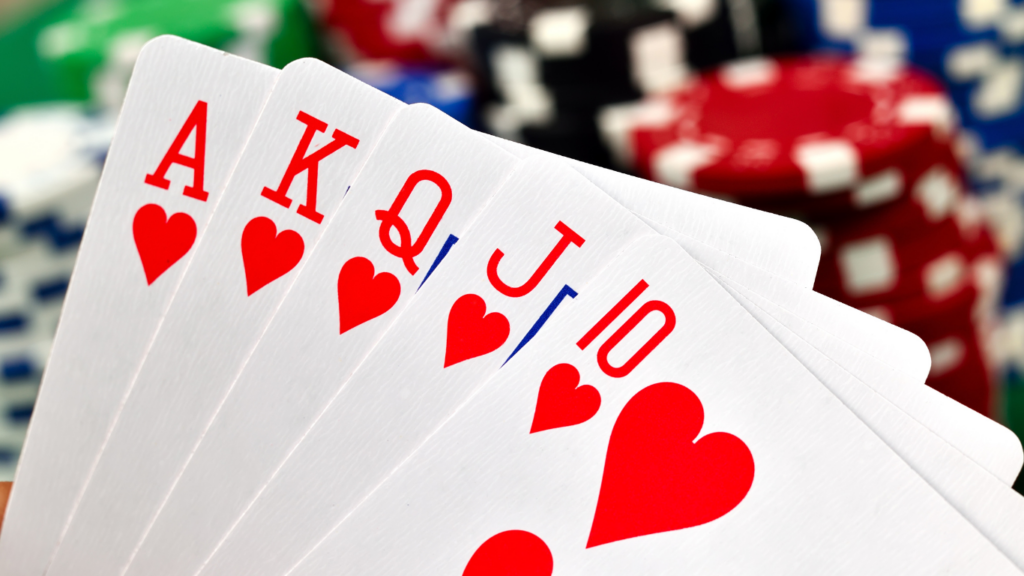Why Skill Matters in Casino Games
Skill impacts the outcomes of many casino games, offering players an advantage over games solely based on chance. In games like blackjack and poker, expertise in strategy and decision-making enables players to influence results more effectively than relying purely on luck.
Skill-based games reward consistent practice and understanding. For instance, experienced poker players analyze opponents’ behavior, calculate odds, and manage their bankroll efficiently. These abilities separate amateurs from professionals and significantly improve winning chances.
Strategic decision-making reduces potential losses. In blackjack, players use card counting or optimal play strategies like the basic strategy chart to increase odds against the house edge. By applying these techniques, players enhance their control over the game while minimizing risks.
Skill creates a more engaging gaming experience. Games like baccarat or slots primarily rely on chance, while skill-based games challenge players to refine techniques, adapt strategies, and compete at higher levels. This makes playing more rewarding and intellectually stimulating.
Blackjack: The Ultimate Skill-Based Casino Game
Blackjack stands out as a top choice for players who thrive on strategy and decision-making. Its blend of simplicity and depth makes it ideal for those seeking a skillful challenge in the casino.
Basic Strategies for Success
Understanding basic blackjack strategies is crucial for reducing the house edge and enhancing winning odds. I focus on the fundamentals, like knowing when to:
- hit
- stand
- split
- double down
based on the dealer’s upcard. For instance, I always stand on a hard 17 or higher and hit on soft hands like Ace-6 if the dealer’s card shows a strength above 7. Sticking to these guidelines not only improves my performance but ensures consistency in my gameplay.
Optimal play also requires calculating probabilities without relying solely on instinct. Incorporating a basic strategy chart serves as an essential reference, allowing me to make mathematically sound decisions in every hand.
Importance of Card Counting
Card counting is an advanced tactic used by skilled players to gain an edge over the casino. By tracking the ratio of high to low cards in the deck, I predict the likelihood of favorable outcomes before placing bets. For example, a high count implies a greater chance to land valuable ten-value cards, which directly impacts my decisions at the table.
It’s not illegal but often discouraged by casinos; discretion is key. I maintain a balanced approach by avoiding obvious betting patterns or sudden actions to avoid detection. Mastering card counting demands practice and focus, but it boosts my ability to capitalize on advantageous situations in the game.
Poker: A Game of Strategy and Bluff
Poker combines strategic thinking, psychological insight, and calculated risk-taking. Unlike luck-based games, poker allows players to influence outcomes through decision-making and the ability to read opponents.
Key Variants of Poker for Skillful Play
Certain poker variants challenge players to refine their skills. Texas Hold’em dominates as the most popular choice, with its focus on hand strength evaluation, betting strategies, and positional awareness. Omaha, often seen as a more complex variant, requires advanced judgment due to players receiving four hole cards instead of two, increasing hand combinations. Seven Card Stud, which predates Texas Hold’em, tests memory and observation, as players track exposed cards to make better decisions. Strategy-driven players often gravitate toward these variants for the depth they offer.
Poker Skills Every Player Should Master
Mastering essential poker skills builds a strong foundation for consistent success. Calculating pot odds and implied odds ensures better decisions when calling or folding. Reading opponents, including interpreting betting patterns and physical cues, provides a critical advantage. Managing bankrolls prevents unnecessary risks and ensures long-term playability. Bluffing effectively, by choosing the right moments and understanding table dynamics, turns even weak hands into profitable situations. Continuous practice and experience sharpen these skills, elevating gameplay over time.
Sports Betting: Combining Analysis and Prediction

Sports betting exemplifies a skill-based activity where careful analysis and precise predictions impact success. To excel, players focus on examining data, understanding odds, and avoiding errors that compromise performance.
Understanding Odds and Statistics
Comprehending odds is critical in sports betting. Odds represent the likelihood of various outcomes and dictate potential returns. Fractional, decimal, and American odds convey the same probabilities differently, requiring familiarity with all three formats. For instance, fractional odds of 3/1 mean a $10 bet would yield $30 profit, while decimal odds of 4.0 or American odds of +300 represent identical returns. Recognizing these formats enables better comparisons between sportsbooks.
Analyzing statistics such as team performance metrics, player conditions, and historical trends refines predictions. For example, factoring in a basketball team’s winning streak or a quarterback’s injury status informs wager decisions. Seasoned bettors utilize advanced metrics like expected goals in soccer or defensive efficiency ratings in basketball to enhance accuracy.
Common Mistakes to Avoid
Relying solely on emotions often leads to poor betting decisions. Placing bets on favorite teams or players without objective analysis risks financial losses. I recommend prioritizing logical evaluations over personal biases.
Chasing losses, where players bet larger amounts to recover previous losses, is another frequent error. This often results in compounded losses rather than recovery. Managing bankrolls effectively and setting limits ensures consistency and longevity.
Neglecting value betting undermines profitability. Recognizing situations where the odds undervalue an outcome allows skilled players to exploit opportunities. For example, if a team’s probability of winning exceeds what the odds suggest, it indicates value. Identifying value bets requires discipline and analytical insight.
Baccarat: A Balance Between Luck and Skill
Baccarat combines elements of chance with opportunities for strategic decision-making, making it appealing to skillful players. While the game relies on luck for card outcomes, understanding the rules and probabilities enhances strategic betting.
- Bet on the Banker
Placing bets on the banker helps maximize potential returns due to its lower house edge of around 1.06%. Though casinos take a 5% commission on banker wins, the odds still favor this option more than player or tie bets. - Avoid Tie Bets
The tie bet offers high payouts but comes with a significant house edge of approximately 14.36%. Sacrificing this tempting payout minimizes unnecessary risks and improves long-term consistency. - Track Winning Streaks
Tracking patterns, such as consecutive banker or player wins, adds structure to decision-making. Though past outcomes don’t influence future results, identifying streaks can guide betting strategies. - Set Limits
Managing a bankroll is essential, even in games with low house edges. I establish loss and win limits to ensure disciplined play and avoid emotional betting driven by streaks or losses. - Embrace Mini Baccarat for Faster Play
Mini Baccarat offers the same rules but with quicker rounds and lower betting limits. This format provides an excellent platform for refining strategies and gaining experience.






















































































































































































































































































































 Steven Alfonso – Senior Gambling Analyst
Steven Alfonso serves as the Senior Gambling Analyst at Gamble Wise Roll, bringing a wealth of industry knowledge and analytical expertise to the platform. With a background in gaming economics and market research, Steven delves into the latest trends shaping the gambling world, from emerging skill-based betting opportunities to regulatory shifts and technological advancements. His in-depth reports provide a comprehensive look at how the industry is evolving, offering valuable insights for both casual players and seasoned professionals. Passionate about data-driven decision-making, Steven ensures that Gamble Wise Roll remains at the forefront of industry analysis, helping readers understand the risks, opportunities, and strategies that define modern gambling.
Steven Alfonso – Senior Gambling Analyst
Steven Alfonso serves as the Senior Gambling Analyst at Gamble Wise Roll, bringing a wealth of industry knowledge and analytical expertise to the platform. With a background in gaming economics and market research, Steven delves into the latest trends shaping the gambling world, from emerging skill-based betting opportunities to regulatory shifts and technological advancements. His in-depth reports provide a comprehensive look at how the industry is evolving, offering valuable insights for both casual players and seasoned professionals. Passionate about data-driven decision-making, Steven ensures that Gamble Wise Roll remains at the forefront of industry analysis, helping readers understand the risks, opportunities, and strategies that define modern gambling.
